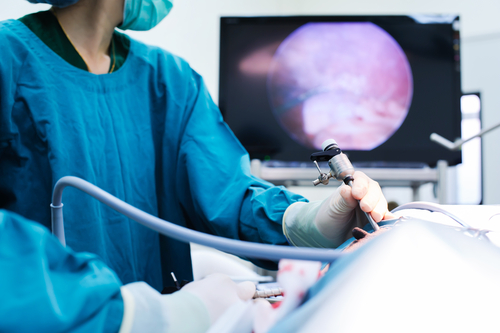Fractyl Laboratories, Inc., a Waltham-based biotechnology company developing novel treatments for type 2 diabetes, recently announced data of a proof-of-concept, single-site trial in 39 patients, which determined that a minimally invasive surgical procedure using the company’s Revita™ Duodenal Mucosal Resurfacing™ (DMR) System provided beneficial changes in blood sugar in patients with poorly controlled type 2 diabetes (T2D). The achieved results were comparable to the results usually observed with the use of more invasive bariatric surgery procedures.
Duodenal Mucosal Resurfacing™ (DMR) is a non-invasive therapeutic procedure intended to safely remodel the duodenal mucosa with thermal ablation. The Revita™ DMR System is designed to alter the body’s ability to process sugar and dramatically improve glycemic control for patients with Type 2 diabetes.
The data was recently presented at the 3rd World Congress on Interventional Therapies for Type 2 Diabetes and 2nd Diabetes Surgery Summit that took place in London, United Kingdom by Alan D. Cherrington, PhD, a Professor of Medicine and Molecular Physiology and Biophysics at Vanderbilt University. Currently, another multicenter study of Revita DMR has begun in South America and in Europe.
“I appreciate having the opportunity to present our data. Patients in this study had poorly controlled type 2 diabetes, despite medication use. They experienced a significant improvement in HbA1c after this minimally invasive procedure, as well as some weight loss,” said Dr. Cherrington. “With this study, we continue to see evidence that the biology of the intestine plays a very important role in type 2 diabetes pathology, and that altering it can meaningfully improve blood sugar control.”
In the study, a total of 39 poorly controlled T2D patients (HbA1c > 7.5% on at least 1 oral anti-diabetic drug) were given DMR on either a long-segment of the duodenum (> 9 cm; LS-DMR; n=28) or a short segment of the duodenum (< 6 cm; SS-DMR; n=11).
The proof-of-concept study had as primary endpoints the safety and the decrease in HbA1c, which were examined over 6 months. Results showed that there was a baseline mean HbA1c (9.5%) reduction more by LS-DMR than SS-DMR at 3 months after the surgical procedure, indicating a dose-dependent effect of the treatment from DMR (p<0.05 for LS versus SS).
In LS-DMR patients who had baseline HbA1c of between 7.5 and 10% and stable simultaneous anti-diabetic agents, HbA1c following LS-DMR was reduced at 6 months, from 8.5 to 7.1% (p<0.05). There was also an accompanied modest reduction in weight of 2.3 kg.
The results also showed no relationship between the improvement of the magnitude of HbA1c and the weight loss degree. Three of study patients had duodenal stenosis, and needed endoscopic balloon dilation. All the events had a good resolution.
“Earlier this month, our team published a five-year follow-up study showing that surgery may be more effective than standard medical treatments for the long-term control of type 2 diabetes in obese patients,” said Francesco Rubino, MD, Chair of Bariatric Surgery at King’s College London and Consultant Surgeon at King’s College Hospital in London, UK. “This is a huge shift in how we think about the disease. It will be exciting to see if these early results using a much less invasive duodenal mucosal resurfacing approach will be reproduced in larger studies.”
Fractyl announced in July 2015, the initiation of the Revita-1 trial. In its first phase, the study enrolled 50 patients across ten global research sites. A change in HbA1c in patients with uncontrolled T2D is the study the primary efficacy endpoint. This if defined an HbA1c of 7.5 to 10 % and having poor glucose control on oral medications.
At present a total of 20 patients have received the treatment in the Revita-1 study. The company will initiate in 2016 the second study phase. This will be a sham-controlled, double-blinded clinical trial that is expecting to enroll up to 240 patients.
“These results are helpful as we design our path to market, including pivotal trials in Europe and the United States,” said Harith Rajagopalan, MD, PhD, Co-Founder and CEO of Fractyl. “It is exciting to have our data presented at WCITT2D in context of the spectrum of novel intervention therapies for type 2 diabetes.”
Type 2 diabetes is a metabolic disorder involving the hormones that regulate blood sugar, leading to blood sugar levels that are higher than normal. It affects over 350 million people worldwide, and it is a progressive condition that worsens over time.
Despite significant effort and numerous drug options, nearly half of the diabetic population in the U.S. and Europe will become poorly controlled. Poor control leads to chronically high blood sugar levels, which can result in damage to the kidneys, eyes, nerves, and large blood vessels.


